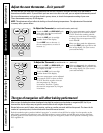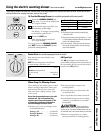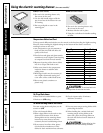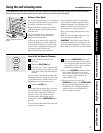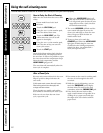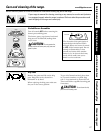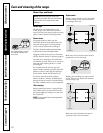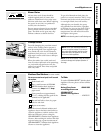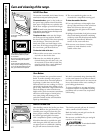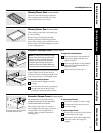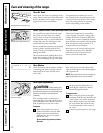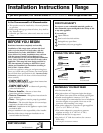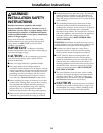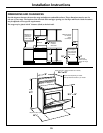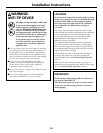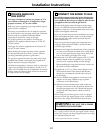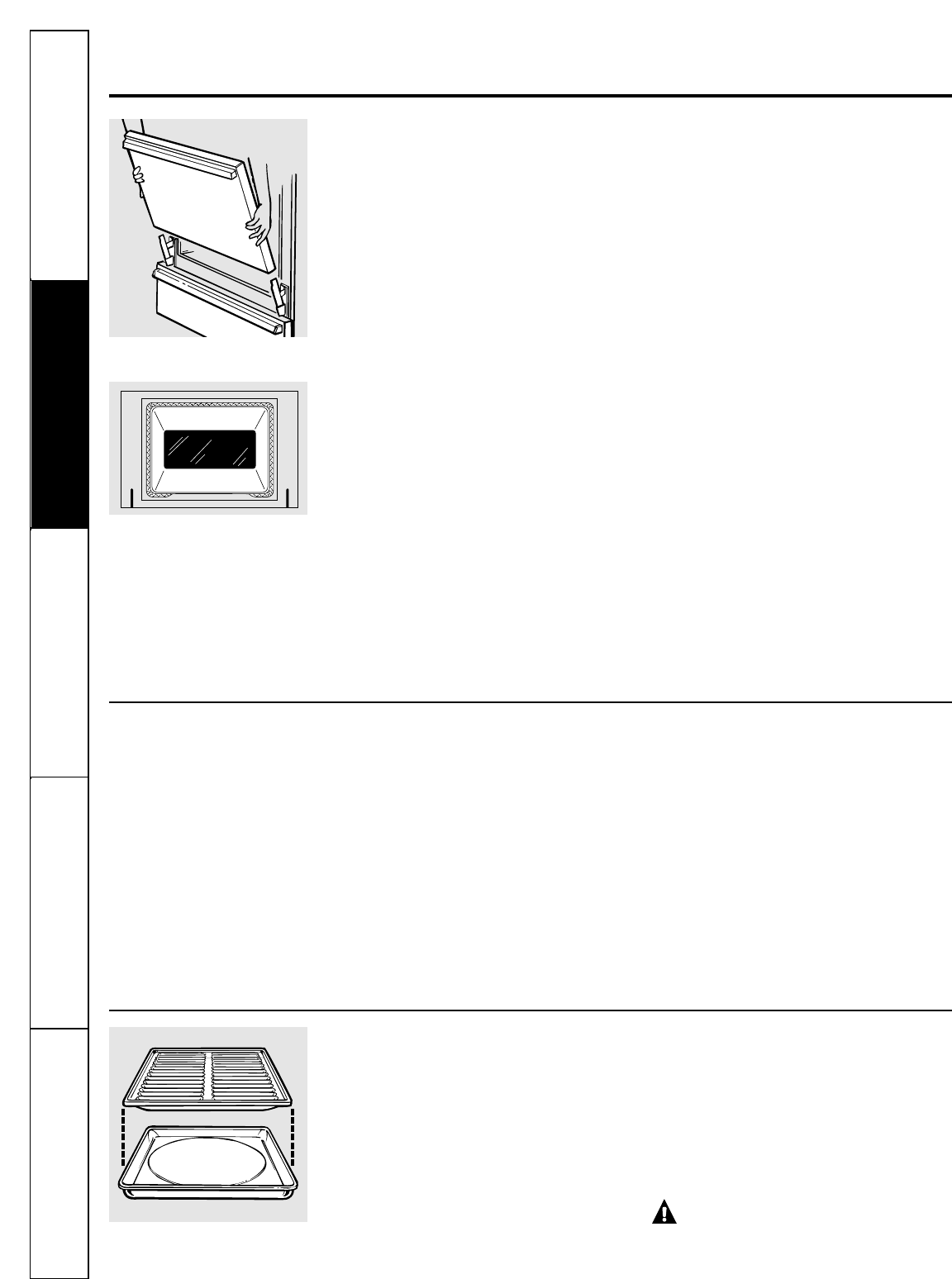
Operating Instructions Safety InstructionsInstallation InstructionsTroubleshooting Tips
Consumer Support
Care and cleaning of the range.
Lift-Off Oven Door
The oven door is removable, but it is heavy. You may
need help removing and replacing the door.
To remove the door, open it a few inches to
the special stop position that will hold the
door open. Grasp firmly on each side and
lift the door straight up and off the hinges.
NOTE: Be careful not to place hands between the
hinge and the oven door frame as the hinge could
snap back and pinch fingers.
To replace the door, make sure the hinges
are in the special stop position. Position
the slots in the bottom of the door squarely
over the hinges. Then lower the door
slowly and evenly over both hinges at the
same time. If the hinges snap back against
the oven frame, pull them back out.
To clean the inside of the door:
■ Do not allow excess water to run into
any holes or slots in the door.
■ Because the area inside the gasket is
cleaned during the self clean cycle, you
do not need to clean this by hand. Any
soap left on the liner causes additional
stains when the oven is heated.
■ The area outside the gasket can be
cleaned with a soap-filled scouring pad.
To clean the outside of the door:
■ Use soap and water to thoroughly clean
the top, sides and front of the oven door.
Rinse well. You may also use a glass
cleaner to clean the glass on the outside
of the door.
■ Spillage of marinades, fruit juices, tomato
sauces and basting materials containing
acids may cause discoloration and should
be wiped up immediately. When the
surface is cool, clean and rinse.
■ Do not use oven cleaners, cleansing
powders or harsh abrasives on the
outside of the door.
Oven Bottom
The oven bottom has a porcelain enamel
finish. To make cleaning easier, protect
the oven bottom from excessive spillovers
by placing a cookie sheet on the shelf
below the shelf you are cooking on. This is
particularly important when baking a fruit
pie or other foods with a high acid content.
Hot fruit fillings or other foods that are
highly acidic (such as tomatoes, sauerkraut,
and sauces with vinegar or lemon juice)
may cause pitting and damage to the
porcelain enamel surface and should be
wiped up immediately.
We don’t recommend using aluminum foil
on the oven bottom. It can affect air flow if
the holes are blocked and it can concentrate
heat at the bottom of the oven, resulting in
poor baking performance.
To clean up spillovers, use soap and water,
an abrasive cleaner or soap-filled scouring
pad. Rinse well to remove any soap before
self-cleaning.
Broiler Pan and Grid
After broiling, remove the broiler pan from
the oven. Remove the grid from the pan.
Carefully pour out grease from the pan
into a proper container. Wash and rinse
the broiler pan and grid in hot water
with a soap-filled or plastic scouring pad.
If food has burned on, sprinkle the grid
with detergent while hot and cover with
wet paper towels or a dishcloth. Soaking
the pan will remove burned-on foods.
The broiler pan and grid may be cleaned
with a commercial oven cleaner.
Both the broiler pan and grid can also be
cleaned in a dishwasher.
Do not store a soiled broiler pan and grid
anywhere in the range.
CAUTION: Do not clean the broiler
pan or grid in a self-cleaning oven.
Lift the door straight up and off
the hinges.
The gasket is designed with a gap
at the bottom to allow for proper
air circulation.
Do not rub or clean the door gasket—
it has an extremely low resistance
to abrasion.
If you notice the gasket becoming
worn, frayed or damaged in any way
or if it has become displaced on the
door, you should have it replaced.
Grid
Pan
30



